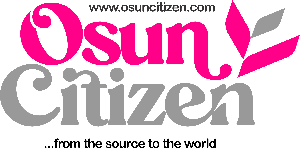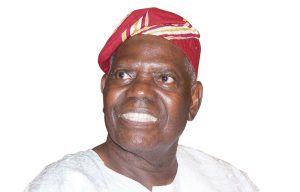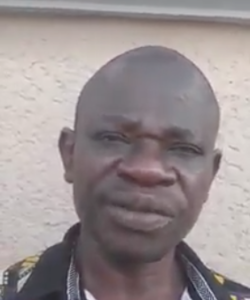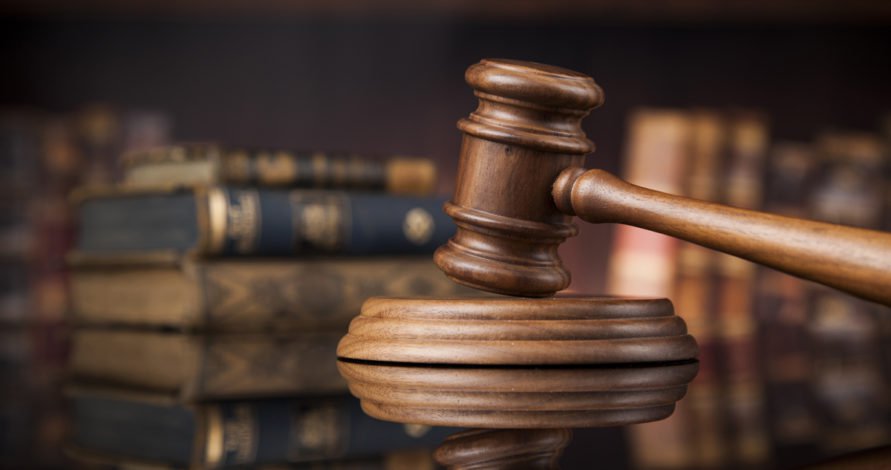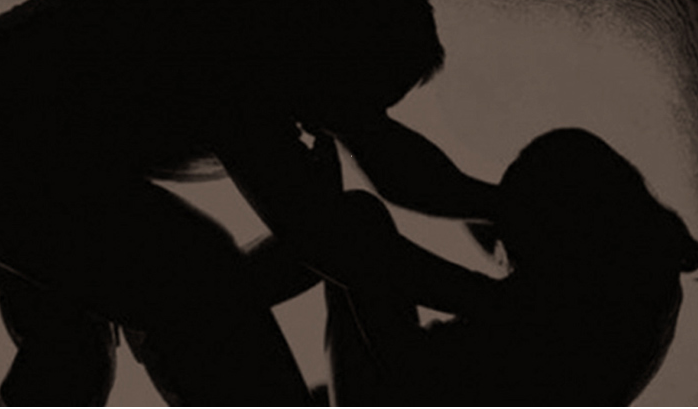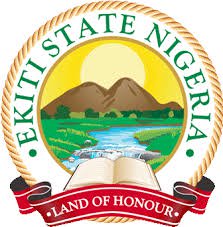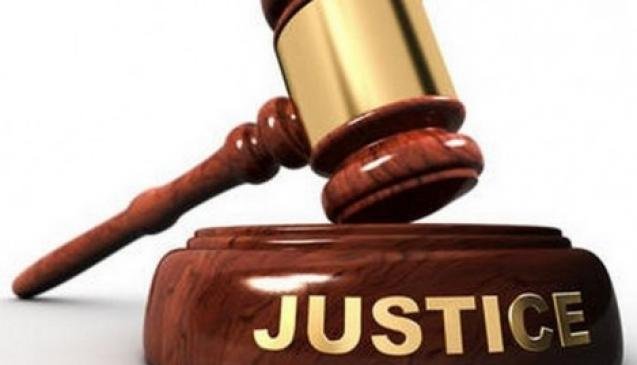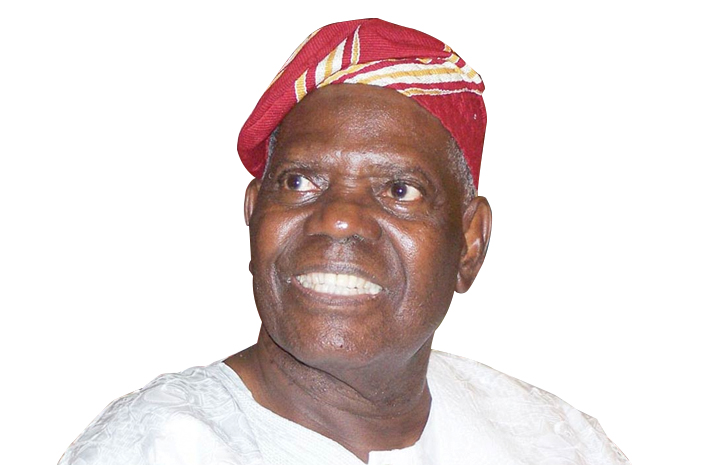
To have clocked 80, you must have longevity gene in your family…
My grandparents lived very long, but my parents lived for a very short time. My father died at age 50 and my mother died about age 45. So, if you find the average, maybe I am supposed to live for about 47 years. And that was about the time I was coming out of the prison. I thank God I did not die in prison. Since I came back, I was expecting, thinking that perhaps I took the gene of my immediate parents. I started being careful. Maybe God’s grace led me this far.
At what age did you overcome the fear of sudden death?
Honestly, I was in trepidation since about age 50 to 70 – that I might die suddenly, but it was during that period that I was being stampeded into difficult kinds of assignments. I thank God that I didn’t lose my life as a governor. Immediately after I came out of office, I suffered a very serious heart ailment which I would not have discovered if I remained in office because we were brought up to work very hard, both in school and at work.
Are you saying you were stampeded into becoming a governor and National Chairman of your party?
I never had any original intention to be a politician at all. I was not attracted by it. I didn’t like being a politician and I didn’t start being one but one way or the other, I was attracted into it or stampeded into it to use the word or commandeered into it because my first assignment in politics was an appointment by the military to serve as a councilor in Ila Local Government in 1971. Oluwole Rotimi was the governor of the then Western Region. I woke up one day, opened the newspaper and saw my name included in the list of the people they called Management Committee of Ila Local Government. What that meant, I didn’t know. But because it never disturbed my job, I had to travel all the way from Lagos to Ila to serve as a member of the committee of the council. It was, maybe, another name for a councilor because we were not elected. I enjoy service. I loved it but it was very tedious because I had to live in Lagos, working with British Petroleum and serving in Ila. So, you know what it means going to meetings. I belonged to committees. I attended to plenaries; I went to committee meetings, all the way from Lagos. No good roads then. I had to go through Ikorodu/Sagamu; the old Lagos Road. I was dragged into it.
After that assignment, I thought I was done with politics. One day, a message came from Ila that I was to attend a meeting. There was no such word as wards then, we called them quarters. They said I was to attend quarter meeting. I said ‘what’s my business about the quarter meeting? They said the quarter head and all the quarter people wanted me. So, I had to go to Ila. Getting to the meeting, they asked me to accept or to agree to serve as a councilor in the Obasanjo transition to civilian rule in the second republic. So, I was returned to council unopposed for Isedo ward 1 in Ila Orangun. I didn’t very much like it because I thought one of our brothers would go and I had been discussing with that one, trying to encourage him to be ready to go. But suddenly when they brought that idea, I say okay I recommended my brother who was supposed to go. But the man’s family insisted they wanted me, and that everybody in the quarters wanted me. Then, I became helpless. I asked them what they wanted and they told me. They said they wanted roads to their villages. So, I accepted to serve and that was the second time. As a councilor now, the rule was that there was going to be a constituent assembly and Ila was to be merged with Odo Otin Local Government as a constituency to elect somebody to that constituent assembly. Nobody in my place showed interest because the other local government had 16 councilors. In my place, we had 14 and nobody seemed to signify interest. In contesting, I just felt I would just score 14 votes if I had all in my council and somebody in the other council would score 16 and I would be the loser. I am going back home. That was my intention but we went into the election and with one of the best politicians in my area, Chief Kola Balogun, who was the first Nigerian Minister for Research and Information; he too contested. Then, one Dairo, a former private secretary to Chief Obafemi Awolowo, also contested. One lawyer was also in the race. When the votes were counted, I scored 14; the others shared the remaining 16 votes; with each scoring four votes. So, they declared me elected. So, I had to go to the Constituent Assembly to join others to write the 1979 constitution. There, I became friendly or associated with many Nigerians of the Igbo and Hausa extractions and it was about the beginning of my journey into national politics. I thought I was done because my company had to give me a leave of absence to serve in the Constituent Assembly and I went back to my company. I thought I was done. Suddenly, one day, like everybody, I heard that I was appointed Secretary to the State Government in Bola Ige’s government in the old Oyo State. I didn’t even know what it meant. I didn’t know what SSG was supposed to do.
Did you campaign during the election that brought Ige to power?
Honestly, I did. There is a big brother, Chief Ayo Fasanmi, who I met at the constituent assembly who was very used to my area. He lived in Osogbo, he passed through my town all the time to go to his own town and because of that, he knew the area very well and he just met me and said Chief Awolowo will like to see me. Honestly, I was over-excited. How can Chief Awolowo want to see a small me? What about? I had never been a politician. I was afraid. He said Chief Awolowo will like to see you maybe tomorrow evening at Park Lane in Apapa. I first of all consented. Later I went back to him and told him that I won’t be able to make the appointment because I was afraid. I needed to carry my people along because I didn’t know what chief Awolowo was going to say to me and I didn’t want anybody to say I have gone to Chief Awolowo behind their back. I knew when I was young as a school boy in my place, if you say mention the name Awolowo, they will cut your head. In my place, we didn’t support Awolowo at all. Anytime Awolowo was coming to Ila in my youthful days, the Ila people, everybody, will go to the farm. So ,each time Awolowo or Awolowo supporters came to Ila, they will talk to themselves because only the entourage will listen to them. It’s like a curfew.
How was your meeting with Awolowo?
So, after consulting with some of my friends, they were more excited than I was. They said you ought to have answered him. So, some of my friends had to follow me. We are about four or five and we told Ayo Fasanmi we are now ready. He took us to Chief Awolowo. I had known Awolowo by reputation. I had always seen him in pictures and one or two occasions seen him in life maybe as a chancellor of the University of Ife. I had relatives, personal daughter at the university and I attended the convocation. I used to see him talking. I admired him, I had read nearly all his works by that time but I was trying to find out why is it that my people didn’t like this man. So, because of that I kept reading all his works, all his interviews, all things said about him. All things said in his favour. I read most things before I was invited to meet him and I prepared my questions. I was ready to meet him and to engage him, really. He gave me good time. We talked for well over two hours and I put so many questions that I regarded as difficult because I tried to put questions that will show how he contradicted himself in some occasions. He told me to ask all my questions. So, I asked all my questions and he answered them together. He impressed me and from that moment I knew Nigeria had a great leader
When was that?
That was 1977. It must be November, 1977. I enjoyed interacting with him and in life, he appears much greater than I used to know him in reputation and I respected him a great deal. What he actually called me for was that he wanted to do politics again and that in the first republic, my people didn’t accept him. He learnt if he came to Ila through me this time that my people would accept him. I got overwhelmed by that kind of gesture. How can he say I want to go with you to your place? It was too much for me anyway but I didn’t answer to that. I asked my questions and left. Then I became taunted by that request. Awolowo said he wanted to come with me to Ila and he wanted Ila people to accept him. So, that became an albatross on me and I felt I must work hard to see him win election. In approaching my people, I had a lot of problems. All the educated people didn’t want me to do Awolowo’s politics. All the Muslims didn’t want to do Awolowo politics and they were in the majority in my place at that time. But myself being a Muslim, I decided to start from the mosque. I didn’t go to mosque to ask them to follow me to Awolowo but I prevented using the mosque as a campaign ground. I tried to persuade my people not to allow us to use the mosque as a campaign platform and we had all our watchmen in all the Ratibi mosques so that nobody will bring politics to the mosque. Since I got that done, I thought politics would then start. In recruiting people to contest elections, all the Christians refused to answer me .All the educated people like refused. That time we thought graduates must represent us but they didn’t come along with me. So, all the National Party of Nigeria (NPN) candidates that time were graduates and most of them were Muslims. That was when I became really afraid that things might not work well. But we worked very hard to see people vote for the Unity Party of Nigeria (UPN) and we won all the constituencies in my place in the 1979 election. As soon as that happened and Chief Awolowo did not win the presidency, I went back to my job. I had to go back to my job. I wasn’t a politician. I had done what I was requested to do. I was working for British Petroleum. I was enjoying a managerial position with good salary. I was happy. So, suddenly an announcement came that I was appointed SSG. I have never been a civil servant. I didn’t know what SSG mean. I didn’t know what it has to do but I remember when we were at the constituent assembly that was written into the constitution that a position of SSG was created. So, it is a constitutional position. So, I had to accept to be, not with ease too, because I was afraid losing my job. Before then, there had not been stability in Nigerian politics .If I lose my job and accept to be SSG, three months later there was a coup d’etat, what happens, I lose my job? So, I had to write to my company to give me leave of absence. It was granted that I should serve but this time without pay. When I went to the constituent assembly, it was with pay but this time I was granted leave of absence without pay.
People usually call you Baba omo kekeke..why?
That was after I had been a governor. It is because I love education. I always said it, the teachers didn’t like me that schools were not made for the teachers, the schools were made for the pupils. A situation where the teachers will own the school without doing well with the pupils was not acceptable to me. I made it a principle and I made it clear to the teachers that they don’t own the school, the pupils own the school. If there were no pupils, there should be no teachers. I created a platform of interaction with people which I called Labeodan. I moved round the whole state letting them know that only good teachers should be in schools. I removed all the bad ones. I removed 4000 teachers to be replaced by good teachers. I wanted pupils to have a good science background in their learning. My schools were flooded with teachers of history, teachers of Yoruba, teachers of religious knowledge, teachers of all that kinds of thing. In the whole Osun State, hardly did we have 20 science teachers. I went to a school where I met a physical education teacher teaching physics. The pass rate then was less than two per cent in the school certificate examination. Those who were making the two per cent were missionary schools. Government schools were having it almost too bad. Everybody was failing. So, the teachers became Kingsley’s of schools. I said No, in service you have to serve the pupils. The pupils should be the king and not you the teachers. Maybe that influenced the idea of them calling me baba omo kekeke. The teachers didn’t like this but the pupils were happy.
What is your guiding philosophy in politics, and who are your role models?
My major role model was Chief Awolowo. My guiding philosophy is service to humanity. In my time I told you I served as councilors first for the military and second elected. We were not earning money. No salary. I was living in Lagos, attending meetings in Ila. You know how much it will cost me traveling down for every meeting. I enjoyed it. The government paid us N100 allowance per month which we donated to public service because it amounted to nothing. So, the purpose of acceptance was service. No other thing. And it was also because nobody took money from me. It is like a chieftaincy thing. My people called me and said ‘come and be our councilor, and sent me there unopposed. So, I thought I must serve them.
So you didn’t spend money to print posters or lobby?
No! We went to a quarter meeting and the matter was debated and that was the end of it. By the time we finished, they called it Federal Electoral Commission (FEDECO). Nobody opposed me. So, I did not need any poster.
You actively participated in politics from the Second Republic till date…
I started before the Second Republic because I served during the military transition as a councilor, but I acted actively during the Second Republic starting as SSG. I ended up as Deputy Governor. So, I served in rare political positions during that time…and maybe that was when I was knew what politics was supposed to be, how to play it and Chief Awolowo was still around. We were always by his table, eating with him, cracking jokes, asking questions ,knowing more about why things should be in one way or the other and we thought that was tutelage and I was directly working with chief Bola Ige. He had been in politics since the first republic. He was the Publicity Secretary of the party. He has known a lot about politics.
You said you didn’t spend money in the early stage of your political career…
Yes, at all stages of my life.
You participated actively in the Second Republic. At what stage did politics become monetised and what would you say was responsible for it?
I can say it started at the beginning of the Third Republic and this republic. At least, if I didn’t know much, I know as a governor and even before then during the military, I contested again to Abacha’s National Confab though I boycotted after I won. I contested in disobedience to my group; the Afenifere and the NADECO. I contested but the instruction was that I should not contest. Don’t honour Abacha and because I was just coming from prison and I wanted to prove to the military that they were wrong to send me to prison for what they call conspiracy to enrich Unity Party of Nigeria which I know was false because I didn’t do any such thing but they said so immediately I came back from prison. The same military formed two parties – NRC and SDP and they were bankrolling the two parties. The government built two houses for them in all the 774 local governments. In other words, it means 1600 houses for parties with government money. They were paying salaries of secretaries and chairmen and so on. They started funding them, trying to introduce money and bribery into politics. I didn’t like it. So, when Abacha was trying to organize the confab I didn’t want those who belonged to that sector to win in my area. So, after the election, to prove the military wrong, I boycotted the confab. In that election, I didn’t give anybody money and in the third republic, go and ask Gboyega Awomolo, he was one of the people that voted for me in that election. There are many of my people who felt you must contest and I contested and I won and I didn’t spend kobo for anybody.
So, how did we get here?
I think the military introduced bribery into politics. Those who took over from the military were military fronts, errand boys and collaborators in the PDP. We formed the APP first and those of military collaborators formed the PDP. Along the line, many of such collaborators came to flood the All Peoples Party (APP) and we withdrew because we didn’t want to be corrupted and we formed the Alliance for Democracy (AD). We were not to be registered but after the local government election, we cleared all the local governments in the Southwest and because the Southwest was denied opportunity through Moshood Kashimaawo Olambiwonninu (MKO) Abiola who died in prison, they didn’t want to go ahead without the Southwest. That’s why AD was registered. They didn’t intend registering it and it was through the AD that I contested as governor. That time it was politics of service. It was politics of the people, not politics for money. That was the one I participated in. I contested and won. I have always contested to be national chairman of political parties and nobody has ever taken one kobo from me. I have never received bribe or have a share in bribe with anybody in this country. I challenge all civil servants, all contractors, all politicians to come out to say Bisi Akande shared something. I have never done it, I will not do it. I have never used money to be in any position.
Have you ever been offered money?
Nobody will be good enough to offer me money, because I see it as an insult. It means when you are outside bringing your money, you are coming in with my price. Nobody will be bold enough to do that.
There are allegations of that happening in parties today…
I don’t know. It might be. When we formed the All Progressives Congress (APC), we formed it with that mind set but after forming the APC, after becoming a party, some people calling themselves the new PDP walked out of their party and joined us.
Not that you formed it together?
No, no, no! They only joined. The Bukola Sarakis, the Atiku Abubakars, the Tambuwals and co, they only moved in. They moved in to come and join us after we were already APC. We had formed our party before they became members. Our party was already on but we allowed them in because they appeared to be condemning PDP for what they knew PDP was doing wrong and we thought they were genuine. So we allowed them in but now there has been a mixture of new PDP or old PDP joining old CPC and so on. That’s why you have a lot of people now. So, if you are hearing that some people are using money to get there now, it is a new phenomenon and it started when I had left position in the party.
If you are to define political parties based on ideology, what makes APC different from PDP ideologically?
We have clear-cut ideologies. Ideologically, what makes APC different from PDP is that PDP had led Nigeria into a neck-deep problem of corruption which is the foundation of a failing nation. They have led Nigeria neck deep into indiscipline. But we formed APC to be able to introduce discipline, to eradicate corruption and to mop up all the bad economy that PDP had established 16 years before we came to power. We also wanted to save the country from insecurity. If you remember, about 20 local governments in Borno State were in the hands of Boko Haram before APC government came. Before APC came into government there had been herdsmen killing all over the place. Since the drought in the Sahel, since the drying up of water in Lake Chad, there had been pressure from the Sahel into Nigeria and we may not have seen it in Yoruba land until Chief Olu Falae was kidnapped in his farm during former president Goodluck Jonathan’s era. That was when Yorubas started knowing herdsmen. But the mischievous politicians started by calling it Fulani herdsmen. But the moment they see that the two presidential candidates are Fulani, they stopped calling it Fulani herdsmen, they returned to herdsmen .Nigerians can be easily deceived by these people. They are very cunning; they have a lot of mischievous tendencies. When Buhari was becoming very popular and was dealing with their corruption, what had happened 20 years before Buhari started happening again; they started calling it Fulani herdsmen. Nigerians bought into it and said it was the Fulani that were killing. But when their own candidate too is Fulani, they dropped the word Fulani and started saying herdsmen killing. And the herdsmen in question, they are the gunmen killing people in Nigeria 20 years earlier since the first drought that destroyed Mali, Sudan before Libya and some other failing countries in Sahel. When a country fails, there is no more control of the army or the police. The weapons in their hands becomes their own and they turn to mercenaries. Anybody can hire them to do evil and most of these people doing it might not be Nigerians. But the mischievous politicians will say Fulani herdsmen in order to discredit Buhari. And Nigerians are credulous a little. When politicians are deceiving us; we dance round them and that’s why it appears particularly to most people that there are no differences between the APC and the PDP.
In 2014/2015, you spoke passionately about restructuring. Now, it seems to be one of the failed promises of the APC. Your party has presented Buhari again and restructuring is not on his agenda. Would your party restructure Nigeria in Buhari’s second term?
I wrote the first book on restructuring in 2002. Restructuring was not in the manifesto of APC when I was the chairman. Devolution of power was in our manifesto and there is a little difference between the two. People don’t know the difference. You can say devolution of power is more or less a restructuring but it is not. I was one of those that began the agitation for restructuring in Nigeria. I believe in restructuring absolutely but that doesn’t mean that my party believes in it. And if I believe in restructuring ,it is my duty to work very hard to sell my idea to my party but I believe my party can’t be persecuted for it .I believe in it, I am not saying my party believes in it. I have believed in it well before now. The agitation for restructuring began when Abiola was denied opportunity to serve when he won the presidency and that is when the idea of restructuring began and I was part of the beginning of it. I signed the first Yoruba Agenda on restructuring under the chairmanship of the late Adebayo Adedeji. I led my colleagues to popularise it by writing and launching what we called the Yoruba Agenda. The essence of the Yoruba agenda is restructuring. I wrote a personal book with a foreword by Abraham Adesanya on restructuring. It does not mean that APC believes in what I believe but it is my duty to work very hard to sell my belief to APC but if they don’t buy it, we don’t crucify them for it. But APC accepted devolution of power while we were writing the manifesto and what is devolution of power? Allow the states to do more and the federal to do less. That is devolution of power and all you need to do is to change or to reduce what you call exclusive list in the constitution and you do not add it to the concurrent so that it goes into residual. I don’t see a reason why a federal government should engage in agriculture. They have no land. All lands belong to the state. I don’t see a reason why the Federal Government should engage in primary and secondary education because that’s where the culture of people is imbibed and you can’t universalize culture. Culture of the Yorubas might not be the same as the culture of the Itsekiris; the culture of the Igbo might not be the same as the culture of Hausa or Fulani. So, it is in the primary and secondary school that you can expand the mind of the children into the culture so that their outlook in future would create the dynamo that can modernize culture. Because of that, I don’t see the Federal Government participate in primary and secondary education but when PDP came, they said their principal policy was basic education. They used it to steal money. They started by giving me money to build 10 schools. I used it to build 30 of the same standard and structure with the permission of their engineers and their materials. I built 30 with the money of 10 and I started saying it. They stopped giving me money and were awarding the contract in Abuja. By the time I was leaving government, none of their own had left foundation level. I have opened up my own for schools to use. All these things that PDP said they would do, they were using it to steal Nigeria’s money.
How do you explain somebody walking down to CBN and talking $2.1billion? That is what Buhari has been battling with. If our system isn’t a bad system you would have seen most people in jail. It’s the stealing money which generated into free money of pay without work, prosperity without service or work. That’s what everyone is now doing. They are stealing pants to make money or human body parts to make money. That’s the new culture. It shows a failing in our education. It is because the Federal Government muddled up education during PDP time. If you look at the constitution it never allocates primary and secondary education to the Federal Government at all. But with impunity, without regard to the constitution, the Federal Government appropriated that function to itself to steal money during PDP time. All these are what we saw when we put in our manifesto of APC that powers must devolve from the centre to the states.
Why has it not been done?
It is possible for National Assembly to do it, including the state assemblies. Buhari can’t do it. He has no power to do it. And he can’t leave his job of executive service to go and be doing the legislative work.
Does that not bother your party that you are not able to deliver on your promises?
That is not a promise. It’s in our manifesto. Our promises are encapsulated into economy, eradication of unemployment, making Nigeria safe and fight against corruption. That’s the plank upon which Nigeria voted us.
Manifesto, tangentially included devolution of power. We tried, and you know it has been done once during Buhari’s time, when they wanted to amend the constitution all proposals were defeated at the National Assembly. What do you want Buhari to do? He’s not a member of National Assembly.
With the benefit of hindsight, what are some of the things you would have done differently, either as governor or party chairman?
Honestly, there is nothing I’ve done in politics that I would have done differently. I believed in what I did. Not all I wanted to do were successful but most of them were well thought out and deep rooted in reasoning and in the interest of the people of Nigeria.
As one of the major actors that shaped Nigeria, are you ready to take responsibility for the present situation in the country?
I won’t take responsibility for the present situation in the country but I’m ready to take responsibility for all my participation and doings in the country thus far. Like I said earlier on, not everything I did succeed and not everything I wanted to do were acceptable. In democracy, you lose some and win some. For all that I initiated or participated, I take responsibility.
@ The Nation
